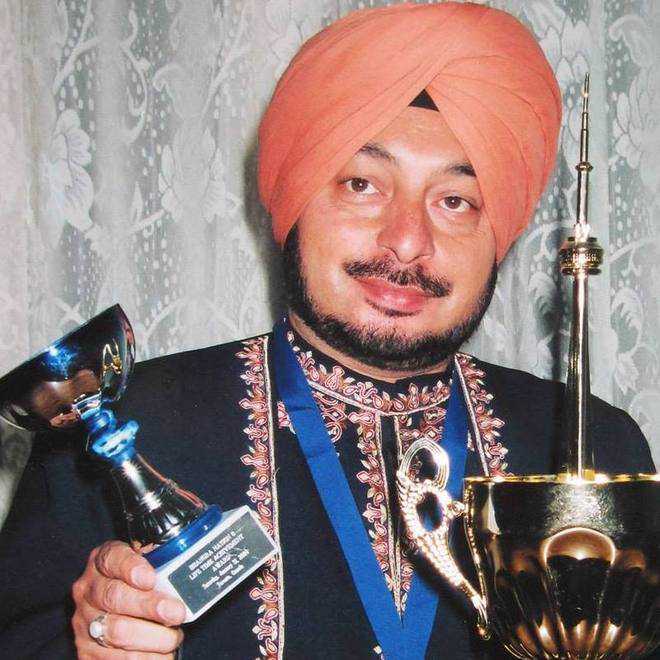Amarjot Kaur
Avtar Chana, even as a kid, marked the wise words of his father, who believed that persistence, endurance, and determination must always be the foundation of a course one chooses to follow in their life. So, for Avtar, 55, who has fancied Punjabi folk dance Bhangra since 1973, when he first performed in school, he is determined to take the dance form to as many countries as he can.
“We moved to Chandigarh in 1964 Chandigarh, but I was born in district Fatehgarh Sahib. I studied here at N.D. Paul Public High school, which shut down after the principal died and I would regularly perform with school’s bhangra team under the aegis of Mohander Singh, who is now based in Texas,”
Avtar shares about his first few dates with the dance form. He says that even while he studied at DAV College, and then in Government College, he remained the captain of the bhangra team, until one day he got a job. “I was in Panjab University’s Engineering College (now UIET) and participated in national and state-level bhangra competitions, but bhangra took a backseat when I landed a job at the Punjab Financial Corporation in 1985. By 1986, I was married,” he says.
That Chana had a heart of an artiste and his mind couldn’t pacify his heart’s desire to dance at the beat of dhol, he possibly couldn’t have found refuge in the monotony of a ‘nine-to-five-job’. For years, he struggled to tame his obsession for dancing, even after his wife passed away, but his father’s words lingered and passively motivated him, rekindling his love for bhangra. Not only has Channa curated World Bhangra Council, last year in April, with a team of 52 cultural ambassadors, he has 15 countries, including USA, Canada, Mexico, Argentina, Ireland, UK, Poland, Spain, Czech Republic, Greece, UAE, Singapore, Australia, New Zealand, and India rooting for the council. “These countries are a part of this endeavour, which I undertook to promote bhangra,” he says.
However, we are prompted ask him about the bhangra scene in India in comparison with other countries to which he promptly replies, “There are 130 bhangra groups abroad, while in India there are around 100. Also there is a huge disparity between the frequency of bhangra competitions here and in other parts of the world. Here, bhangra competitions take place only for two or three months a year, while in other countries, three to four universities organise such competitions every month,” he says.
Avtar, who has held bhangra workshops in Czech Republic (2000), London (2001), and Greece, and has also judged several bhangra competitions in Canada, Washington DC, Texas, and Seattle shares that people living abroad are more experimental, when it comes to bhangra. He says, “India traditional bhangra is more popular, but abroad they add hip hop and salsa to it too.”
An administrative consultant with the Ministry of Health, Government of India, Avtar shares, “I will be meeting Kirron Kher for his new venture, World Bhangra Championship, an idea I proposed to director of Culture Affairs Department, Punjab, but they didn’t have enough funds for it.”
amarjot@tribunemail.com
Unlock Exclusive Insights with The Tribune Premium
Take your experience further with Premium access.
Thought-provoking Opinions, Expert Analysis, In-depth Insights and other Member Only Benefits
Already a Member? Sign In Now










